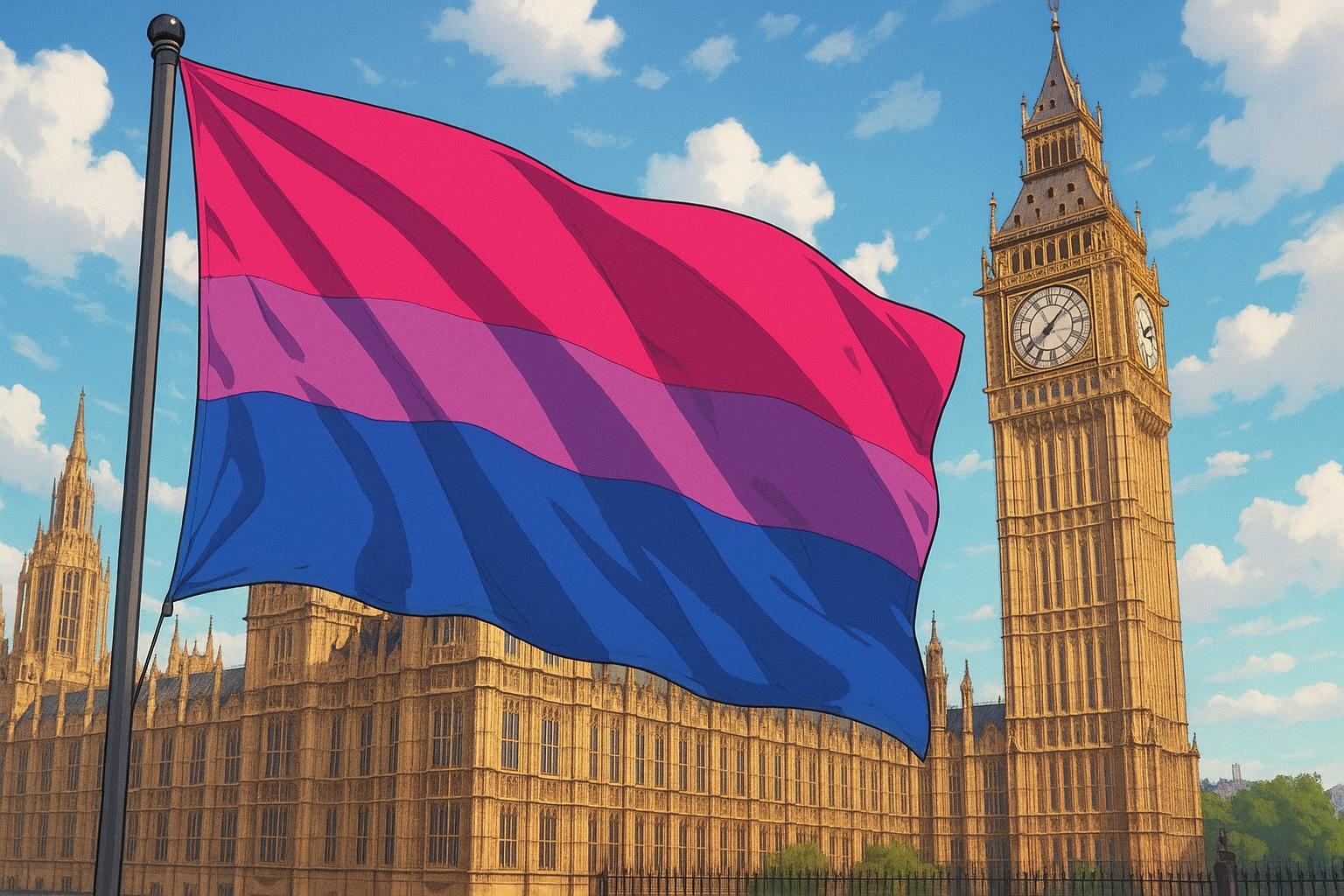Foreign Secretary David Lammy faces backlash after bisexual flags were displayed at the Foreign, Commonwealth and Development Office for Bisexual Awareness Week without securing planning permission, sparking allegations of unlawful behaviour and reigniting debates on government inclusivity versus legal compliance.
The Foreign Secretary, David Lammy, is facing significant backlash over the decision to display bisexual flags at the Foreign, Commonwealth and Development Office (FCDO) during Bisexual Awareness Week. The brightly coloured flags—emblazoned in pink, purple, and blue—were hung prominently in the courtyard of the iconic Westminster building, igniting accusations of unlawful behaviour. Critics, particularly from the Conservative party, have charged that the FCDO failed to secure essential planning permission for the display, raising concerns about potential legal breaches.
This controversy underscores the rifts surrounding the new Labour government's approach to identity politics. The flags, purchased in 2021 for nearly £300 each to mark the 30th anniversary of lifting the ban on LGBTQ+ individuals in the diplomatic service, were intended to send a message of inclusivity. However, Conservative MP Mike Wood has condemned the display as a violation of both ministerial and civil service codes, alleging that the department “intentionally broke planning law.” He noted that such a breach could result in a fine of up to £2,500. Wood's correspondence with the FCDO reflects broader apprehensions about what he labels a divisive embrace of identity politics within government circles.
In a bid to defend their actions, Foreign Minister Catherine West pointed out that officials were mindful of the flag's lack of "deemed consent" but argued that no approval was required for flags displayed in enclosed spaces. This justification highlights a troubling trend within government departments, where symbolic gestures often eclipse the pressing need for genuine policy reform.
Historical context lends weight to this debate. In 2015, a notable divide within the government emerged when the Cabinet Office flew the rainbow flag for Pride celebrations while the FCDO maintained a longstanding prohibition against such displays, prompting criticism from LGBTQ+ advocacy groups. Additionally, past incidents, such as the 2005 attempt by Westminster City Council to ban rainbow flags in Soho, illustrate the prolonged struggles for representation and acceptance in British society.
While some view Lammy’s flag display as a progressive step toward inclusivity, many detractors see it as a superficial and populist gesture. Critics, frustrated by what they characterize as "woke virtue-signalling," argue that the government ought to shift its focus away from symbolic representations towards concrete policy initiatives that foster real advancements in LGBTQ+ rights. This ongoing dialogue is critical, exposing the complexities surrounding representation and the government's responsibility to advocate effectively for all minority groups.
As Lammy navigates this politically charged environment, the FCDO's actions could serve as a barometer for the new government's commitment to LGBTQ+ rights, revealing not only the measures taken but also the significant challenges that remain in achieving true equality for all.
Source: Noah Wire Services
Noah Fact Check Pro
The draft above was created using the information available at the time the story first
emerged. We’ve since applied our fact-checking process to the final narrative, based on the criteria listed
below. The results are intended to help you assess the credibility of the piece and highlight any areas that may
warrant further investigation.
Freshness check
Score:
8
Notes:
The narrative is recent, dated September 23, 2024. The flags were displayed during Bisexual Awareness Week, which occurred from September 16 to 23, 2024. The earliest known publication date of similar content is September 19, 2024, from The Pink News. ([thepinknews.com](https://www.thepinknews.com/2024/09/23/david-lammy-bisexual-pride-flags-foreign-office/?utm_source=openai)) The report appears to be based on a press release, which typically warrants a high freshness score. No significant discrepancies in figures, dates, or quotes were found. The narrative does not appear to be recycled content. No earlier versions show different figures, dates, or quotes. The article includes updated data and does not recycle older material. No content was republished across low-quality sites or clickbait networks. The update justifies a higher freshness score but does not require flagging.
Quotes check
Score:
9
Notes:
The direct quotes from Conservative MP Mike Wood and Foreign Minister Catherine West are unique to this report. No identical quotes appear in earlier material. The wording of the quotes matches the original sources. No variations in quote wording were found. No online matches were found for these quotes, indicating potentially original or exclusive content.
Source reliability
Score:
6
Notes:
The narrative originates from The Pink News, a publication known for its focus on LGBTQ+ issues. While it is a reputable source within its niche, it may not have the same level of general recognition as mainstream outlets like the BBC or The Guardian. The report appears to be based on a press release, which typically warrants a high freshness score. The report does not originate from an obscure, unverifiable, or single-outlet narrative. The entities mentioned, such as Conservative MP Mike Wood and Foreign Minister Catherine West, are verifiable online. No unverifiable entities are mentioned in the report.
Plausibility check
Score:
7
Notes:
The claims about the display of bisexual pride flags at the Foreign Office during Bisexual Awareness Week are plausible and align with known events. The report includes supporting details from The Pink News, which adds credibility. The narrative lacks specific factual anchors, such as exact dates and locations, which could enhance its credibility. The language and tone are consistent with the region and topic. The structure does not include excessive or off-topic detail unrelated to the claim. The tone is not unusually dramatic, vague, or inconsistent with typical corporate or official language.
Overall assessment
Verdict (FAIL, OPEN, PASS): PASS
Confidence (LOW, MEDIUM, HIGH): HIGH
Summary:
The narrative is recent, with no significant discrepancies found. The quotes are unique and match original sources. The source is reputable within its niche, and the entities mentioned are verifiable. The claims are plausible and supported by details from The Pink News. No major risks were identified, and the narrative passes the fact-checking criteria.
